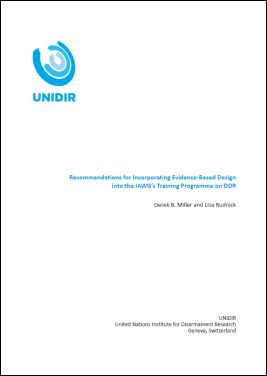In January 2011, the UN’s Inter-agency Working Group on Disarmament, Demobilization and Reintegration of Ex-combatants (IAWG on DDR) adopted the goal of developing an evidence-based approach for reintegration programming as a Strategic Priority area for the group’s joint strategic workplan for 2012–2014.
This development created an opportunity to advance long-time and on-going discussions between the United Nations Institute for Disarmament Research (UNIDIR) and numerous UN and partner agencies with whom the Institute had engaged for the previous five years on matters of community security and the application of cultural research to programme design (including but not limited to the Department of Peacekeeping Operations, the United Nations Children Fund, the World Health Organization, the United Nations Development Programme, United Nations High Commissioner for Refugees, and the International Organization for Migration).
In response to this strategic priority area, UNIDIR created and implemeted a multi-phase, multi-year project to develop a new tool that could assist field teams design better, evidence-based reintegration projects when working in complex, dynamic, and volatile regions. Much of this work was inspired or adapted from the earlier UNIDIR Security Needs Assessment Protocol project (SNAP, 2006–2010) and learning how to move knowledge to action in administrative systems using innovative methods.
Citation: Derek B. Miller and Lisa Rudnick (2015). "Recommendations for Incorporating Evidence-Based Design into the IAWG's Training Programme on DDR", UNIDIR, Geneva.
